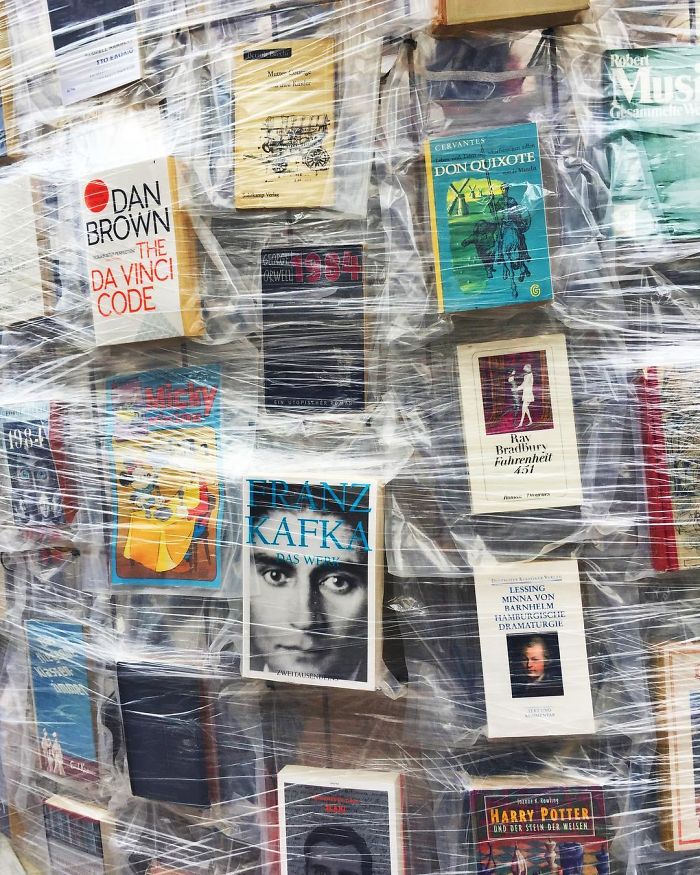Note: If you wish to receive, via e-mail, (1) my weekly newsletter or (2) daily copies of these posts, notify me at rrbates1951 at gmail dot com and I will send it/them to you. I promise not to share your e-mail address with anyone. To unsubscribe, send me a follow-up email.
Friday
The authoritarian right continues its onslaught against books with Virginia’s Madison County School Board last week removing 21 works from the high school library, including some high-quality titles. Here’s the list:
- The Handmaid’s Tale by Margaret Atwood
- The Absolutely True Diary of a Part-Time Indian by Sherman Alexie
- The Perks of Being a Wallflower by Stephen Chbosky
- Shatter Me series of 6 books by Tahereh Mafi (Defy Me, Ignite Me, Restore Me, Shatter Me, Imagine Me, Unravel Me)
- Tar Baby by Toni Morrison
- The Bluest Eye by Toni Morrison
- Sula by Toni Morrison
- Love by Toni Morrison
- The Tale of the Body Thief by Anne Rice
- Interview with the Vampire by Anne Rice
- Snow Falling on Cedars by David Guterson
- Empire of Storms by Sarah Maas
- Bag of Bones by Stephen King
- 11/22/63: A Novel by Stephen King
- It by Stephen King
- Furyborn by Claire Legrand
What kind of pattern can be found in the selections? Well, there are books about female empowerment (Handmaid’s Tale); about negotiating interracial relationships (Part-Time Indian, Tar Baby, Bluest Eye, Love, Snow Falling on Cedars); and about the turmoil of adolescence (Part-Time Indian, Perks). There are also gothic thrillers (the novels by Anne Rice and Stephen King) and sword and sorcery novels (Shatter Me, Empire of Storms, Furyborn).
I would imagine that relatively few of the Morrison novels get checked out—they are not easy reading—but American conservatives love to beat up on the one African American author to win the Nobel prize. As for the gothics and S&S novels, I suspect that someone saw young people having just too much fun reading them and so decided they were bad. This, after all, is what happened with the Harry Potter novels.
Recent political developments show us that we can no longer assume that teaching mind-expanding works in our classes will go unchallenged. With the rise of Trumpist authoritarianism, we should expect that certain people will object when we instruct our pupils in critical thinking skills. What we thought was settled teaching practice now appears to be something we must fight for.
As one who experienced first-hand the desegregation battles of the 1960s, I remember the moment when I thought we could stop fighting. As a child, I had thought that segregation would go on forever, but as I was teaching a Minority Literatures class in the mid-1980s–and as I saw my Black and White students sitting together as though it were no big deal–I recall thinking, “For them, this is just the way the world is.” What seemed to me miraculous—and to this day still seems miraculous—they take for granted.
Unfortunately, nothing can be taken for granted, including gains we once thought were permanent. Fearful of what they see as fiction’s life-changing potential, authoritarian conservatives are doing what they can to squash it. And they’re not wrong in seeing the threat. Literature really can get kids to question old assumptions and open their minds to ideas that frighten their parents.
Fortunately, to really prevail, these parents would have to go to Fahrenheit 451 lengths and forbid reading altogether. No sooner will they ban one book then another will take its place. And then there are all those ways that kids find their ways to banned books in spite of parents. After all, there are bookstores and local libraries and the internet and book networks with friends. Still, teachers, librarians, and the rest of us need to do all we can to connect young people with the books they need.
For inspiration to keep fighting the good fight, here’s a Bertolt Brecht poem I have shared in the past:
The Burning of the Books
By Bertolt Brecht
Trans. Michael R. BurchWhen the Regime commanded that books with harmful knowledge
Should be publicly burned and on all sides
Oxen were forced to drag cartloads of books
To the bonfires, a banished
Writer, one of the best, scanning the list of the
Burned, was shocked to find that his
Books had been passed over. He rushed to his desk
On wings of wrath, and wrote a letter to those in power
Burn me! he wrote with flying pen, burn me! Haven’t my books
Always reported the truth? And here you are
Treating me like a liar! I command you:
Burn me
The good news is that not all the truth-telling books get burned. Many make it through the censors. Still, the banished writer’s point is a good one: good books pose a real and present danger to authoritarian regimes.

